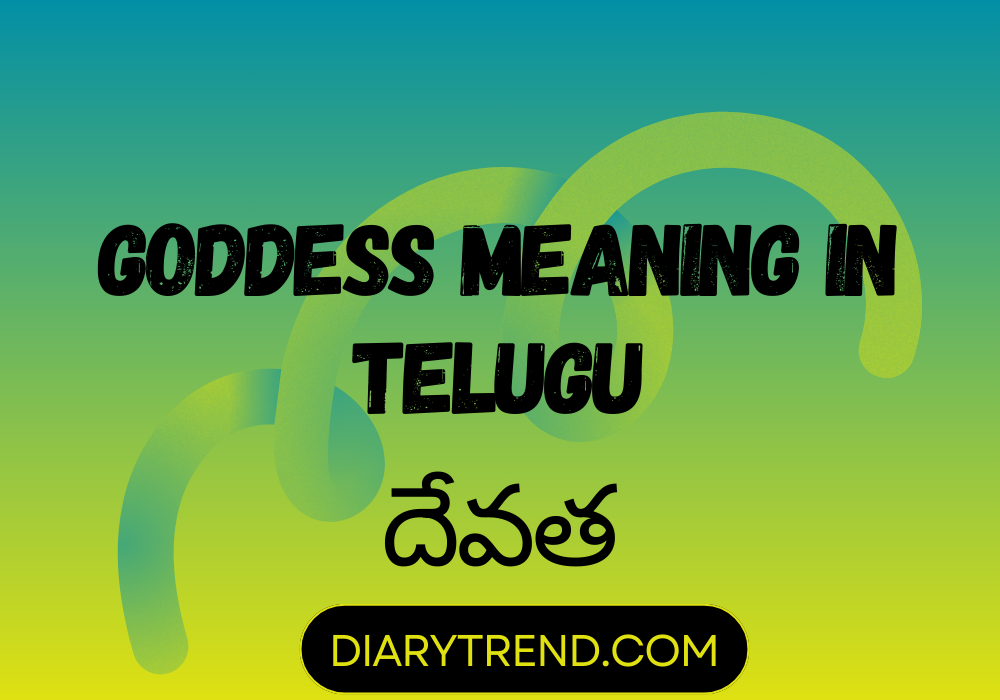The term “దేవత” in Telugu refers to a “goddess,” embodying the divine feminine aspect within Hinduism and other Indian religions. This concept is deeply ingrained in Indian culture, mythologies, and spiritual practices, holding a significant place in the hearts and minds of millions. The representation of a goddess transcends the mere idea of a deity; it encapsulates the essence of power, wisdom, and the nurturing aspects of nature.
Historical Context
The reverence for the divine feminine is a millennia-old tradition in India, with roots stretching back to the Indus Valley Civilization. This civilization, one of the world’s oldest urban cultures, showed early signs of goddess worship, suggesting a deep-seated cultural inclination towards matriarchal deities. As Hinduism evolved, so did the pantheon of goddesses, each embodying distinct attributes and powers.
Major Goddesses in Hinduism
In Hinduism, the goddess is worshiped in many forms, with Saraswati, Lakshmi, and Parvati being the most prominent. Saraswati is the goddess of wisdom, arts, and learning. Lakshmi symbolizes wealth, fortune, and prosperity, while Parvati represents love, fertility, and devotion. These goddesses are not only worshiped for their specific domains but also revered as the fundamental forces of the universe, driving creation, preservation, and destruction.
Saraswati
Saraswati is often depicted with four arms, each holding a symbolic item: a book, a rosary, a water pot, and a musical instrument called the veena. These symbols represent the intellectual and creative aspects of life, emphasizing the importance of knowledge and arts in human development.
Lakshmi
Lakshmi is usually shown with four hands, representing the four goals of human life considered important to the Hindu way of life – dharma (righteousness), artha (wealth), kama (desires), and moksha (liberation). She is often depicted seated on a lotus, symbolizing purity and spiritual power.
Parvati
Parvati, the consort of Lord Shiva, exemplifies the ideal wife and mother. She is worshiped as the mother goddess, embodying fertility and domestic harmony. Parvati is also the central deity in the practice of Shaktism, which focuses exclusively on the worship of the goddess, or Devi, as the ultimate truth and creator.
The Concept of Shakti
Central to the worship of the goddess is the concept of Shakti, the divine feminine energy that powers the universe. Shakti is seen as the source of all creation, the energy that animates life and drives the cycles of nature. The worship of Shakti emphasizes the goddess’s role as the primal force, highlighting the interdependence of the masculine and feminine principles in the cosmos.
Festivals and Rituals
India celebrates numerous festivals dedicated to goddesses, each with its own set of rituals and traditions. Navaratri, a nine-night festival, is one of the most significant, dedicated to worshiping the goddess in her many forms. Durga Puja, a part of Navaratri, specifically honors the goddess Durga’s victory over the buffalo demon Mahishasura, symbolizing the triumph of good over evil.
The Goddess in Modern Times
The goddess continues to play a vital role in contemporary Hindu practice and Indian society. She is a symbol of empowerment, especially for women, embodying strength, independence, and resilience. Movements aimed at women’s rights and equality often draw inspiration from goddess mythology, using these ancient narratives to advocate for modern causes.
Conclusion
The concept of the goddess as “దేవత” in Telugu culture is a multifaceted phenomenon, embodying not just religious beliefs but also social, cultural, and historical values. The goddess’s presence is felt in every aspect of life, from the grand festivals in her honor to the daily prayers offered by millions of her devotees. Through the worship of the goddess, followers find strength, wisdom, and guidance, making the divine feminine an eternal and revered force in the Indian spiritual landscape.
